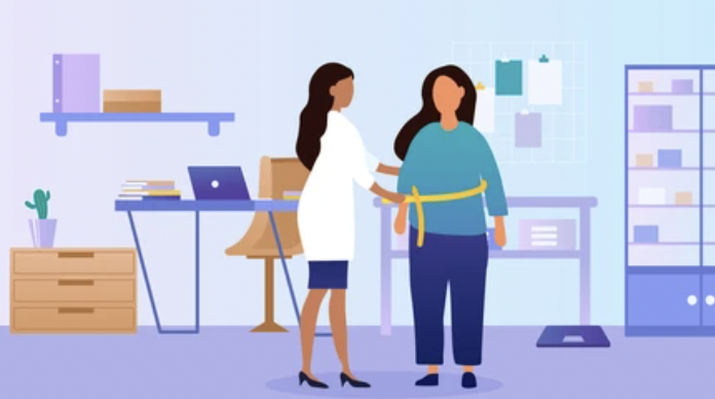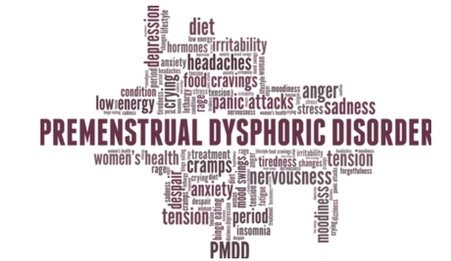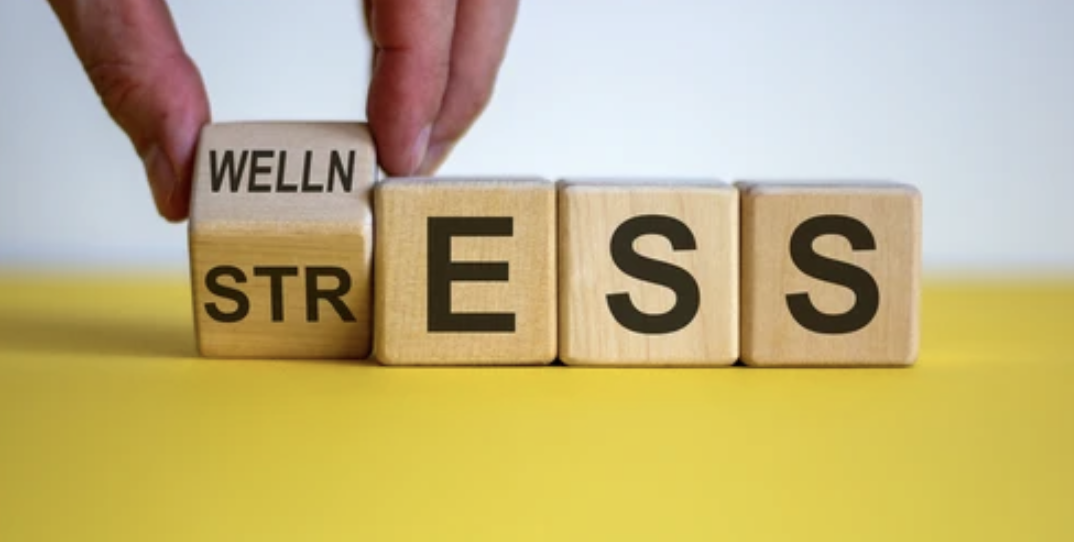Here are some New Year's Resolutions that Won't Hurt Your Self-Esteem, Break the Bank, or Fuel and Eating DisorderWhy do we believe in 'New Year's Resolutions' for a mental health reset?
Living in the United States, it is well-known that our cultural values are highly centered on attaining accomplishments, whether it be climbing corporate ladders, getting degrees to put on our wall, or making a certain amount of money each year. Living in this type of culture, we tend to internalize over time that our worth and value as a human being is centered on the 'what's' that we can DO versus who we really are. We live in a culture of 'doing' versus 'being,' which means we miss the mark on being connected to our bodies, ourselves and others and live to check things off a list. There's comfort and ease in the structure of a 'doing' mindset, but it is also a great way to blink and realize you missed living your life! Keeping our mental health at the forefront is a beautiful way to try to go into to any day, month, or year. We are living in a mental health crisis from the pressures and overwhelm of our 'doing' culture, as well as the incredible stress many people feel from the general state of the world today. There is no time like the present to keep ourselves on the priority list and to know this is the only way we can be productive or helpful to anyone else. What are some New Year's Resolutions that can actually HELP your mental health in 2024? 1. keep a gratitude jar or journal - Every day make a commitment to writing down at least 5 things you are grateful for. The key is they must be very specific to the day. There is science behind this in that it helps create pathways in our brain for seeing the good that exists around us, while simultaneously making us 'less good' at seeing the pessimistic views. It is called the Tetris effect and came make a huge difference in one's life. 2. Write in "You time" into your schedule everyday - It can be 10 min twice a day that you do this. The key here is writing it into your schedule means it cannot be canceled and it is seen as 'just as productive' as any other business appt you have in the day. During this time, make a commitment to 'doing vs being.' Go on a gentle walk outside, put away your phone, do some stretches, or close your eyes and do a quick guided meditation. There is absolute science behind this and these are called 'grounding techniques.' You will be so much more productive in your rest of day when you carve time for just you. 3. "Pay it forward" once a week or once a month - There is absolutely nothing like the feeling we can get by doing something nice for someone. I do this in my practice myself both in my business and personal life. We all have something special and unique to give the world and it makes us feel really good about life and ourselves. It can be paying for the person's coffee behind you that's next in line at the drive through, or in my business we do pro bono psychological assessments to families in need; it can also just be committing to telling five people a personalized complement once a week. It forces us to see the good in ourselves and in others and can again shape oru world view. 4. Write a life plan and create a vision board- this is another one that can be really fun at any point in your life. A couple can do it together for their next year, a group of high school seniors can do this as they prep for college together, or an individual can do this in to prepare for their career over teh next year. Get very specific and create a vision board that really helps you to get detailed about what you want. Again, there is science behind this - it might feel silly to start but you are actually priming your brain to start to do specific things that are going to make your goals more possible. It can be super fun at the end of the year to take this out and see how much came true! It's all about priming your brain pathways to see the world in a healthier way and is called 'the confirmation bias.' What can you do if you find yourself declining despite trying to improve your mental health in 2024? Listen - sometimes you do everything you can and you're just too far in a hole to get yourself out. That doesn't mean you're weak or 'undisciplined.' Try reaching out to a psychologist or therapist who can help you to understand what's happening below the surface. It could be KML or someone else! We all need a coach in life and starting 2024 with one is a great first step to a new year, new you!
0 Comments
please folks - don't get your latest news from TikTok - chances are it's flawed. Let's check out the 'cold shower trend' and see what the science says...What are the benefits?
From a psychological perspective, using cool water (not ice cold) in the shower can be extremely beneficial for grounding purposes. Grounding is a psychological term we use to indicate getting ourselves back in our bodies and it is particularly helpful when we are stuck in the anxious spiral of our mind, and using temperature changes is also a component of dialectical behavioral therapy (DBT) which can be very helpful for emotion regulation. Warm water can be also be very soothing and relaxing, while cool water can 'wake up' the body and help a person be aware of their senses around them. We are not talking about hours here - we are talking about a couple of minutes of temperature change to make the person aware of their sense and out of the worry of the mind. This can be paired with other senses, such as noticing one's visual surrounding, what smells are in the air, what the water feels like on the skin, and what it sounds like as they hear the water. A full shower is also not necessary. Sometimes people can use a simple bowl of cool water and place their hands in it for a minute or splash some cool water on the face. These are all beneficial when the anxiety spin is in full force. Are there any people should should NOT take cold showers? Again, from a psychological perspective, we want to be aware that any extreme panic, fear, worry or anything of that nature requires more than simple grounding techniques. For this issues and concerns, involve a licensed professional on how to proceed. Anyone using any variance in water temperature as a grounding technique should always ensure they are medically cleared for such activity prior to engaging, and psychological professionals do not encourage extremes in temperature of burning hot or ice cold as this could be damaging to the skin, rather gentle changes that can shift our awareness to the body. There are people that may have cardiac conditions and other medical issues that may react poorly with significant changes to the norm of the body in any direction. Safety is always priority. What's the final vote? Well, using cool showers is great when it is done in moderation as ONE part of an entire grounding strategy. It was not invented by TikTok-ers so go to the real experts like the DBT researchers who understand the why behind it. Most importantly, a person needs many tools in their bag that can decrease stress - not just one. This cannot be your only tool - how often is a cool shower available when we are overwhelmed? Think more broadly and get a coping plan that involves behavioral tools as well as cognitive strategies and other helpful distractions. Contact KML or your provider if you need more help! the holidays can be tough when your child suffers from an eating disorder. let us try to help!Why can holidays be a challenging time for people with eating disorders?
They are painfully difficult for people with eating disorders for several reasons. This is a time of year of higher stress anyway, as the holidays are about family, emotion and high levels of connection. This means food is everywhere and is at the center of connection. People are worried about their family members commenting on their weight or assessing their food intake. They are greatly worried about eating foods they did not prepare and therefore lacking the control of what is in them. There is a lot of diet talk around the table, but also in the media. These and other issues create anticipatory stress for the person with the eating disorder. Some common concerns are fearing weight gain and a sense of lacking control around the food. People with eating disorders might also be scared that others will find out about their eating disorders during the holidays since eating is more central to the holiday experience. What are some tips for helping your child cope with an eating disorder during the holidays? Help your child navigate the family process.. Tell your family members to limit any food or diet talk. Tell your family to not discuss or many comments about your child's body for good or bad - perceived compliments are often not helpful either, as the eating disorder will twist the connotation and hear most things as "I'm fat," or "I've gained a lot of weight," or whatever it is. How can parents set boundaries with other family members who might be present? Remember you own your home - you can set boundaries.I know many families who simply say their home is a diet-free zone so no diet talk is allowed. What are some resources you can suggest for parents who are coping with this alongside their child? Get ahead of the game - be proactive not reactive. Discuss a plan with your child and your family. Have a coping plan for your child if they become overwhelmed. Consider how to incorporate their mealplan into the day. Perhaps you make their plate instead of them feeling overwhelmed. Work as a team so your child knows you are there to support. You can also limit the amount of places you go to where eating is involved, this is especially helpful if your child is at the beginning stages of recovery and is very overwhelmed. Finally - these are deadly disorders. Take them seriously and do not believe your child will 'grow out of this' - eating disorders a not a phase. This is the time to get help so involve a professional team immediately, as that is associated with long-term better outcomes. next time you consider studying versus sleeping, read this first...I can tell you sleep is absolutely critical. There's no getting around it. The are many scientific theories around sleep and what it actually does. Some say the brain is reenergizing itself, others say it is cleansing the unnecessary information out as well as consolidating the necessary information together. I can tell you that my many years as a clinical psychologist and adjunct professor confirm the importance of sleep in consolidating information. There really is something to the idea of "I'll sleep on it and let you know in the morning." We can try to learn something the night before and struggle with it terribly, then wake up and it seems to all make sense. That is evidence for the consolidation theory around sleep. I have personally experienced this many times in my own like as an adult learner as well. As a result, it is my opinion that a person is far better off skipping the extra couple of hours of reviewing information you get from an all-nighter and instead refresh your brain with some important rest. All nighters really are not supported by the science and you'll go into the important day of the test, job interview or whatever you are cramming for with heavy eyelids and a slow brain. Chances are that rest will help you more!
Quick sleep hygiene tips!
Having sleep problems? Contact KML - we use CBT-I evidence-based insomnia treatment. Short answer - NO! For the longer answer, keep reading... No shock here from those that know me -come from a Health at Every Size (HAES) approach to understanding and treating eating disorders; this is an evidence-based approach that is absolutely key when working with binge eating disorder, as these folks frequently (though not always) live in larger bodies. The medical community that is uninformed of the dangers of eating disorders and the underlying issues of what drives them, will frequently take a caloric-restrictive approach and attempt to just to produce weight loss without tackling the underlying issues of toxic shame and often abuse history in this population (1/2 of women will acknowledge an sexual abuse history as opposed to 1/4 women without binge eating). Taking an approach to reduce weight as the cure or use bariatric surgery in individuals living in larger bodies supports weight stigma and the idea that a larger body presumes a lack of health and should be changed. Instead, us CEDS-S folks will take a non-weight approach. We will focus on healing the trauma of the individual and normalizing eating patterns through the work with a CEDS dietitian. Once the eating patterns are normalized one of three things can happen to the weight - it can go up, down or stay the same. Point being that this is a side effect NOT the focus of actual evidence-based treatment. Focusing simply on weight management is a culture mentality that has largely gotten the person to be where they are in their eating disorder. If a weight management focus is taken without healing the underlying wounds, the person will frequently shift their symptoms which can look like turning to substances, acting out sexually or other such things. That is called symptom swapping and is widely seen in the treatment setting as a result of someone getting surgery to "fix" the binging without understanding that binging is just the tip of the iceberg. In addition, a larger body is not a symptom of lacking heath - that's a myth. People come in all shapes and sizes - that's a fact. Ultimately, people with binge eating disorder/symptoms are people first and they are suffering and misunderstood by the medical community. When they go to receive help, they are frequently shamed for weight issues and the 'solution' is weight loss products or diets. Dieting is not the answer and people with binge eating have often tried this dozens of times before they ever talked about it with their provider. Also - never assume you know what behaviors a person does based on weight. I have know people with dangerous restrictive eating disorders who live in larger bodies and those with serious binge eating issues that live in smaller bodies. You don't know a person based on their appearance. Assuming that is weight bias and dangerous! Contact KML for treatment that understands weight bias issues and focuses on you, the person and your behaviors - not your weight. Friday gratitude here in relation to POPSUGAR who allowed me to speak on my passion related to children. It's a wonderful article so please click on it. Here's the behind the scenes extended interview you didn't get to see....What are some common signs and symptoms of anxiety in children, and how can parents recognize these signs? What are some steps parents should take if they recognize anxiety in their kids? Would the kid's age change any of the signs/symptoms/steps to take? How might anxiety show beyond typical kid worries?
The most important thing when talking about mental health in children is to notice changes - whether it's anxiety, depression, or other issues there will be changes in how they interact. This could be physical changes like not sleeping well, changes in appetite, and not wanting to socialize in the same ways they would before. With children especially, we can see a shift in their independence - they may show a sudden separation anxiety and fear of doing things on their own they once did. Those are important changes to notice. School-age children might experience anxiety in terms of working about grades and tests in a manner that is excessive. Typical "kid worries" might be getting some butterflies in the tummy on the day of a standardized test and that resolves when the test is over, however the child with high anxiety might worry about that days or weeks in advance and not be able to let it go after the test ends. They might perseverate on what they got wrong and beat themselves up over a lack of perfection. Instead of some simple butterflies, highly anxious children might experience physical symptoms of headaches, knots in their stomach, tears and at times school refusal may be present. Because children are still developing emotionally and cognitively, they often are not fully aware or able to place in words what they are thinking or feeling. They might need help in being able to connect their worries about grades with the fact that they get a headache every morning as they are getting ready for school. How can parents create an environment for their kid to feel open to discussing their anxiety? Are there any strategies you can offer for how to help a parent navigate that conversation? Especially if the parent initiates the conversation about anxiety or their concerns. Any specific dos and don'ts for either? First, I would encourage parents to be kind to themselves too - just because your child is anxious does not mean you are a bad parent or that you did something wrong. The best of parents can have anxious children. It is far more important that you simply open a safe space for your child to express themselves. When talking to children, get on their level - sit down with them and maybe go into their space where they feel safe. Maybe have a talk in their room or sit outside in a place with little stimulation and few distractions- this ensures that the environment itself is set up for open discussion and safety. Using open-ended questions that encourage your child to open up can be very helpful. Often anxious children might be afraid to upset others, including their parents. So, we could say something like, "It seems like you're feeling a lot of things right now and I want you to know I am here. It's okay to 'feel all the feels.'" It can also be helpful to empathize with your child and let them know you are not perfect either. For example, "I might be a grown up, but I get scared sometimes too," by doing that you are modeling for them that feeling feelings is normal and healthy. Our feelings are not the problem but rather what we do with our feelings can lead to a problem if it's not healthy. When you are first starting to have conversations about these things, start slow and allow your child to slowly open up. Shift the goal from "fixing your child or their problem," to "listening to your child and creating an open space." That makes a world of difference in the reaction over time. One very important thing to certainly always do is to rule out if your child is developing anxiety or if they are experiencing a trauma reaction. Most often, it will be uncomplicated anxiety, but we want to rule those things out. So we can always ask a child directly in a gentle and caring tone, "has anything happened to you directly that is making your feel scared or unsafe right now?" If there is an unsafe situation happening than of course we manage those situations swiftly and with immediate professional guidance. Anxiety is also something that can gain power over time, so we want to help the child feel small wins "wow - you made it to school today without any headaches this morning - that's amazing!" Or "wow, I am so proud of how you used your deep breathing and positive self-talk to pull yourself out of the worry spiral!" Praise the wins so they begin to see how they are improving in time. In terms of "don'ts" - here we just want to stay away from trying to "fix" the child or make something go away overnight. Patience is key with shifting anxiety. I would also recommend never using a forceful or judgmental tone, or closed ended questions. That can increase the intensity of the anxious feelings. And, if you make a mistake in parenting and you could have handled something better, just own that. That can make a world of difference to your child. If a parent is worried about their child's anxiety, who should they contact? Their family doctor? What about any school resources? Would this be different for older kids or pre-teens? There are many options these days and often the parent can decide what they feel is best in alignment with their family values. Schools have many options - sometimes kids and teens have anxiety that is so extreme that it can impact their schooling process. Schools are aware of this and there are methods of managing this that can vary from school accommodations, to placement in exceptional student education programs to ensure that the child is helped to make school the safest place possible for them. Some schools also have counseling available and/or group therapy. In addition, therapists can help greatly! Anxiety is very responsive to treatment and the earlier it's caught the better the outcome! Therapy can focus on shifting unhelpful thinking styles, developing coping techniques to regulate one's nervous system (eg., deep breathing, grounding exercises, positive self-talk, etc), and lots of other things. In addition, your family doctor or psychiatrist can assist to discuss potential medication options that can also help to regulate the brain so that the person less likely to be in 'fight or flight' and more capable of using the coping techniques they have learned. The major point is that options exist and anxiety can be helped! With regards to older children and teens, the process is really the same. The differences are mostly going to be in adapting the language we might use to help the child open up about their worries. Older children and teens might also be more aware of what the thoughts are that are fueling their anxiety which can sometimes make it easier to reframe. I was recently interviewed by Yahoo! on PMDD. Here's the full interview you didn't get to see. The writer is fantastic - highly recommend this read! |
OPEN DISCUSSION REGARDING TODAY'S HOT TOPICS!Dr. Kelsey explores the actual science behind today's "hot topics". She also explores deep dive behind some of her featured media topics. Come aboard to see the simple solutions to complex problems! Categories
All
Archives
December 2023
|
Location:
|
Say Hello to our team! |










 RSS Feed
RSS Feed